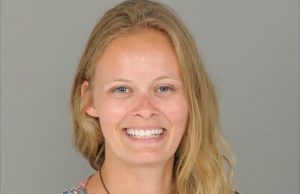
Katharine Lawrence, M.D., MPH, is a 2016 graduate of the Herbert Wertheim College of Medicine. She is currently a second-year resident in internal medicine at NYU School of Medicine. This article first appeared on AM Rounds, the official blog of Academic Medicine, the peer-reviewed journal of the Association of American Medical Colleges.
I chose medicine as a career, not necessarily because I was a scientist, but because I am a humanist. I believe in the concept of illness, not just disease, and strive in my career to better understand and address the various social, political and economic realities that inform my patients’ health. I chose an undergraduate medical program, the Herbert Wertheim College of Medicine (HWCOM), because its mission statement and cultural ethos mirrored these beliefs.
As part of the HWCOM curriculum (described in a recent Academic Medicine article), medical students participate in a “household-centered” medical home program, which pairs trainees from medical, nursing, social work and other fields with a household in the Miami-Dade area. Over four years, the team works closely with the household to address not only medical issues, like diabetes or hypertension, but also social determinants of health, like access to healthy foods, housing or job insecurity, or legal issues.
In my household was Ms. A*—a diabetic, but also a loving mother, cosmetician and recent survivor of intimate partner violence. She invited me into her life, not only as a physician, but as a friend. I sat in her living room, met her family; I was even invited to church on the weekends. When she mentioned her daughter wanted to be a nurse, I offered advice on applications. When the family got a new puppy, she sent me photos. Ms. A helped me be a better doctor by sharing with me the intricacies of her life—in a way I never would have known if our relationship had been limited to a clinic visit. It was through these interactions with my household that I was able to truly appreciate the role of these social determinants in the health and well being of my patients.
So, as a transitioning resident, I discovered something not entirely surprising—I love interprofessional rounds, or “social work” rounds, as they’re called—affectionately or otherwise—in my hospital. Interprofessional rounds provide a unique and powerful opportunity for us to not only see our patients in the larger psycho-social context of their lives, but also to engage with other stakeholders in their care. These are the nurse managers, social workers, therapists, legal experts and care transitions personnel who work daily to ensure safe and lasting positive changes in our patients’ health. And in a public hospital with limited funding for these services and a patient population in disproportionate social need, these individuals are even more remarkable for the work they do.
Like my household through HWCOM, social work rounds give me an opportunity to learn new things, both about my patients as well as about the social system we live in. I learned from Ms. R, an asthmatic in a rent-stabilized apartment run by a slum lord, how someone might be forced to sacrifice their pulmonary function to an affordable apartment full of mites and cockroaches. And I learned from Mrs. S, an émigré from Nigeria with metastatic breast cancer, searching for political asylum, how truly terrifying the label “undocumented” can be for those who need medical care.
In each case, I see the unique challenges my patients face as members of America’s underclass—housing insecurity, food insecurity, job insecurity—and how these insecurities inform their various illnesses. And I see the difference it makes, not only in re-admission rates and medication adherence, but in quality of life when our team is able to offer a service or solve a problem beyond what medical care can do. Because, in the end, I’ve learned from HWCOM and social work rounds that so much of medicine lies beyond the purview of the biomedical. Medicine, in the best sense, is social work.
*Names have been changed to protect patient identity and health information.






